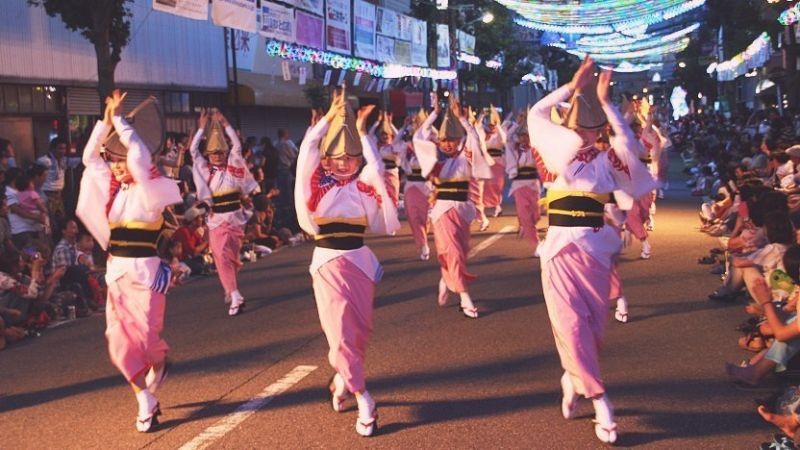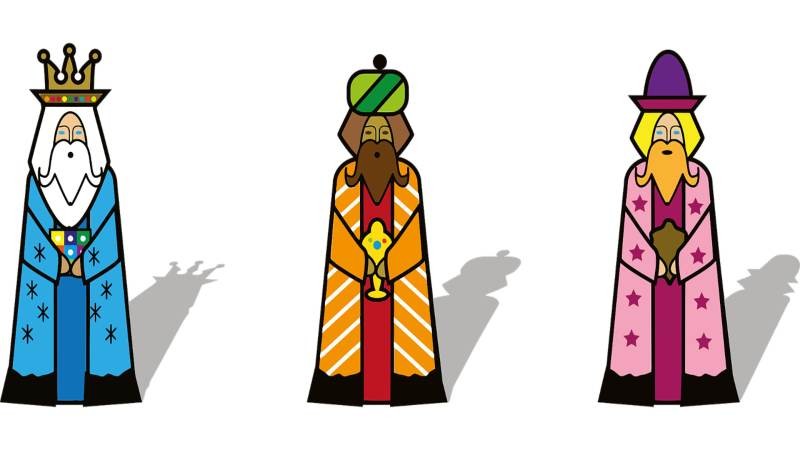
What is Obon?
The Japanese holiday of Obon is devoted to remembering departed relatives and dear ones. During this season, Japan unexpectedly becomes peaceful, the trains become desolate, and the graves begin to flourish with blossoms.
Obon all Quick Overview
- Time/Date: August 13
- Category: Religious
- Where it’s Marked: Japan
- Why it’s Marked: The day is observed by Japanese Buddhists to honor the spirits of their ancestors.
History of Obon
The mythological foundation of Obon is Buddhism. According to legend, Maha Maudgalyayana, a disciple of the Buddha, used his abilities to see his mother after she had passed away and was saddened to learn that she was toiling in the Realm of Hungry Ghosts, a gloomy nether filled with pain. On the 15th day of the 7th month, when Buddhist monks are arriving from their summer vacation, the Buddha directed his pupil to make sacrifices to them. Maha Maudgalyayana was capable of setting his mother free in this way, and he then rejoiced and danced. The Obon celebration is supposed to have its roots in this dance.
How to Celebrate Obon
Numerous customs and celebrations are associated with Obon. These can change depending on the area and the family. Let’s have a look at the most renowned ones for now.
When individuals build a tiny bonfire in front of their homes to welcome spirits as they return home, it is known as the Mukaebi ritual, which marks the start of Obon. The early stages of preparation also include placing small memory plaques, fruits, flowers, and Japanese sweets on the deceased's altar to honor them with things they valued while they were alive. Some places will also create horses constructed of cucumbers and cows with bony protrusions of eggplants, both of which are currently and primarily done in rural areas. To recapitulate, the idea is that the cow will gradually transport the spirits back to heaven once the celebration is ended. In contrast, the horse will assist them in returning to their homes as quickly as possible.
Families who observe the custom will summon a Buddhist clergy member to their residences on the second and third days of the Obon festivities, or perhaps the priest will attend a temple or shrine to recite a sutra and conduct a mourning service. Following the recitation, guests have a meal while discussing old tales of their dearly departed. The dish, known as Shojin Ryori, is entirely vegetarian and frequently consists of pickled cucumbers, spinach with soy sauce and sesame, or stewed beans. In Japanese, they are referred to as Hoyo or Kuyo.
Another bonfire, intended to send the ancestors' spirits to the underworld, lights up the sky. People will arrange Okuribi dances, also known as Bon Odori dances, in several regions of Japan. Originally recorded for the dead, these traditional dances have now come to represent summer festivals. Thousands of revelers and dancers wearing formal attire can be seen dancing in the streets to the rhythm of taiko drums.
Countries that Observe Obon
Other nations, especially those with sizable Japanese populations, hold Bon Festivals.
- The primary city of the Japanese community in Brazil is Sao Paulo, which is also home to the most significant festival there, complete with street Odori dancing and matsuri dance. Contests for the Taiko and Shamisen are also included. This event offers a one-of-a-kind opportunity to sample a range of Japanese cuisine, beverages, artwork, and dancing.
- In Shah Alam and Sabah, Malaysia, annual Bon Odori Festivals are also held. The celebration is more closely linked to Japanese culture than Buddhism. The festival offers the opportunity to sample Japanese food and drinks, art, and dancing. It is primarily held to introduce locals to a portion of Japanese culture.
- Additionally, Japanese-Americans and Canadians connected to Buddhist temples and institutions participated in Bon Odori events in North America. Bon Odori is generally observed, including both religious Obon religious practices and conventional Bon Odori chanting together around yagura in Buddhist Churches of America (BCA) sanctuaries in the United States. A cultural and cuisine bazaar is simultaneously held at many temples. Taiko performances by both amateur and expert ensembles have lately gained popularity as an aspect of the festival.
- The "Bon season" is a significant aspect of Hawaii's modern lifestyle and way of life. The Bon dance celebrations presently take place on the five major Hawaiian islands of Kauai, Oahu, Molokai, Maui, and Hawaii on Saturday nights from June through August. They were originally brought there by Japanese plantation laborers. The locations where they take place are often Buddhist temples, albeit occasionally Shinto temples or retail malls. In certain Buddhist temples, the dance is heralded by a brief ceremony in which the relatives of those who have passed away in the previous year burn to ash in recollection.
Interesting Facts about Obon
One of the rare occasions throughout the year, Obon emphasizes the value of families spending time together. On that note, let’s look at some fascinating facts about this festival.
- Obon is also known as Japanese Halloween.
- This event was brought to the Japanese by Buddhists in Japan.
- A large portion of East Asia also celebrates Obon, often known as "Bon."
- Many individuals are spotted donning "Yukatas" while the festival is going on.
- According to legend, the dead's spirits travel back to their relatives for Obon.
- During Obon, most businesses close their doors and relocate to their hometowns.
- Due to the prevalence of lanterns as festival decorations, Obon is also referred to as the Lantern Festival and simultaneously resembles Mexico’s Day of the Dead.
- Regionally distinct Obon folk songs are used to accompany traditional Bon Odori dances.
- Nevertheless, other regions of the nation, including Tokyo and the surrounding area, observed it on July 15.
- Along with Golden Week and New Year's, the Obon event ranks among the most lavish celebrations in Japan.
- Because Obon is not a recognized national holiday, it is not highlighted in red on the yearly calendar.
- Obon is not intended to be a moment for mortality, fear, or grief, although it deals with death.
Unique Obon Celebration Ideas
Check out these beautiful destinations during your Obon celebration this summer!
- Every year, the Gujo Odori Festival is held in the town of Gujo in the Gifu Prefecture.
- The Kyoto Gozan Okuribi, commonly known as the Daimonji Festival, takes place in Kyoto during Obon. If you haven’t yet been to this spectacular event, you’re missing out big time.
- The Hokkaido island's capital, Sapporo, is a beautiful spot to explore traditional Bon festivals and Japanese culture.
- DIY your lanterns and participate in the lantern festival.
Obon Quotes
Given that your cherished one has passed away, you can feel like all you have are memories. These sayings might be appropriate for special occasions like a loved one's birthday or a death anniversary.
Read some reassuring passages about the special times you had with your beloved.
“As a perfume doth remain in the folds where it hath lain, So the thought of you, remaining deeply folded in my brain, Will not leave me: all things leave me: You remain.” - Arthur Symons
“Death leaves a heartache no one can heal. Love leaves a memory no one can steal.” - Richard Puz
“To live in hearts we leave behind is not to die.” - Thomas Campbell
FAQ
1. What’s the English translation of ‘Yasumi Obon’?
Most businesses provide their personnel what they call "Obon Yasumi" or "Obon respite."
2. When was the first Obon observed?
The Buddhist dance and chant known as Odori Nembutsu, which dates back to the late Heian and Kamakura eras in Japan, is the source of Bon Odori.
3. Is there a reason behind the ban on the Bon Odori?
The controversy surrounding Bon Odori began when the minister of religious affairs warned Muslims not to participate in the yearly festival because it was "inspired by parts of other religions."
4. What are some of the everyday food items consumed during this festival?
Popular street food options comprise savory pancakes, octopus balls, and chicken skewers. Other carnival classics feature desserts like sweet dumplings and shaved ice.
5. What are some of the must-follow rules for celebrating this holy festival?
If you’re looking forward to celebrating this festival in the upcoming year, we believe this list of do’s and don’ts will help you!
6. Why is this festival important to the Japanese specifically?
The household's junior members will learn about the deceased relatives through this. It is a means of "ensuring" the family's lineage's perpetuity.
7. Any last-minute advice for young holidaymakers on the go?
Be advised that right now, hotels and other types of lodging are in high demand and are very expensive.
Obon Observances
| Year | Weekday | Date | Name |
|---|---|---|---|
| 2021 | Friday | 13 August | Obon |
| 2022 | Saturday | 13 August | Obon |
| 2023 | Sunday | 13 August | Obon |
| 2024 | Tuesday | 13 August | Obon |
| 2025 | Wednesday | 13 August | Obon |
| 2026 | Thursday | 13 August | Obon |
We constantly update the dates of holidays that keep changing every year. However, while we revise and change some dates to be accurate, if you find any errors, kindly inform us . That will mean a lot to us.



